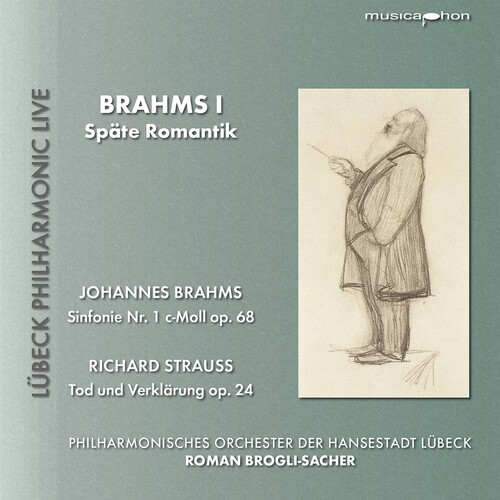Show results for
Deals
- 4K Ultra HD Sale
- Action Sale
- Alternative Rock Sale
- Anime sale
- Award Winners Sale
- Bear Family Sale
- Blu ray Sale
- Blues on Sale
- British Sale
- Classical Music Sale
- Comedy Music Sale
- Comedy Sale
- Country Sale
- Criterion Sale
- Cult Films sale
- Drama Sale
- Electronic Music sale
- Horror Sci fi Sale
- Jazz Sale
- Kids and Family Sale
- Metal Sale
- Music Video Sale
- Musicals on Sale
- Mystery Sale
- Naxos Label Sale
- Page to Screen Sale
- Paramount Sale
- Rap and Hip Hop Sale
- Reggae Sale
- Rock
- Rock and Pop Sale
- Rock Legends
- Soul Music Sale
- TV Sale
- Vinyl on Sale
- War Films and Westerns on Sale

Brahms 1
- (Hybrid SACD)
- Format: SACD
- Release Date: 3/19/2021

Brahms 1
- (Hybrid SACD)
- Format: SACD
- Release Date: 3/19/2021
- Composers: Brahms Strauss
- Label: Musicaphon
- UPC: 4012476569369
- Item #: 2374613X
- Genre: Classical Artists
- Release Date: 3/19/2021

Product Notes
During the fourteen years in which he worked on his First Symphony, Brahms was under a high pressure of expectation: in the shadow cast by Beethoven, he was forced to take a compositionally convincing position both with respect to the dominant father figure as well as the "New German School." Moreover, he saw himself associated with friends who pressed him for a first symphony. And, finally, in the 1850s the scrupulous, hard working but at times insecure Brahms suffered setbacks in at least two attempts to form a symphony out of already extensively developed compositional material. Among all these obstacles, Beethoven's "model" was undoubtedly the greatest. Concerning this, the following remarks by Brahms have come down to us: he explained to his friend Carl Bargheer of Detmold: "If one still attempts to write symphonies after Beethoven, then they have to look entirely different." Some ten years later, after he had already composed a first version of the opening movement of his First Symphony, he admitted to the conductor Hermann Levi: "I will never compose a symphony! You have no idea how I feel when I always hear such a giant marching behind me" - meaning Beethoven. Strauss' tone poem Death and Transfiguration "is an example of a poetic idea that was retrospectively assigned. Alexander Ritter, poet-musician in Meiningen also gave the new composition the title and program: Ritter initially thought of the title "Seraphic Fantasy" - thus a first hint of a metaphysical program - but then decided on "Death and Transfiguration". But that's not all: Strauss had a poem by Ritters that existed in two versions preceded the printed score, combining music and poetry. This dedicated program came into being only after the composition had been completed - whether Strauss was creatively guided by a "poetic idea" remains to be seen.

